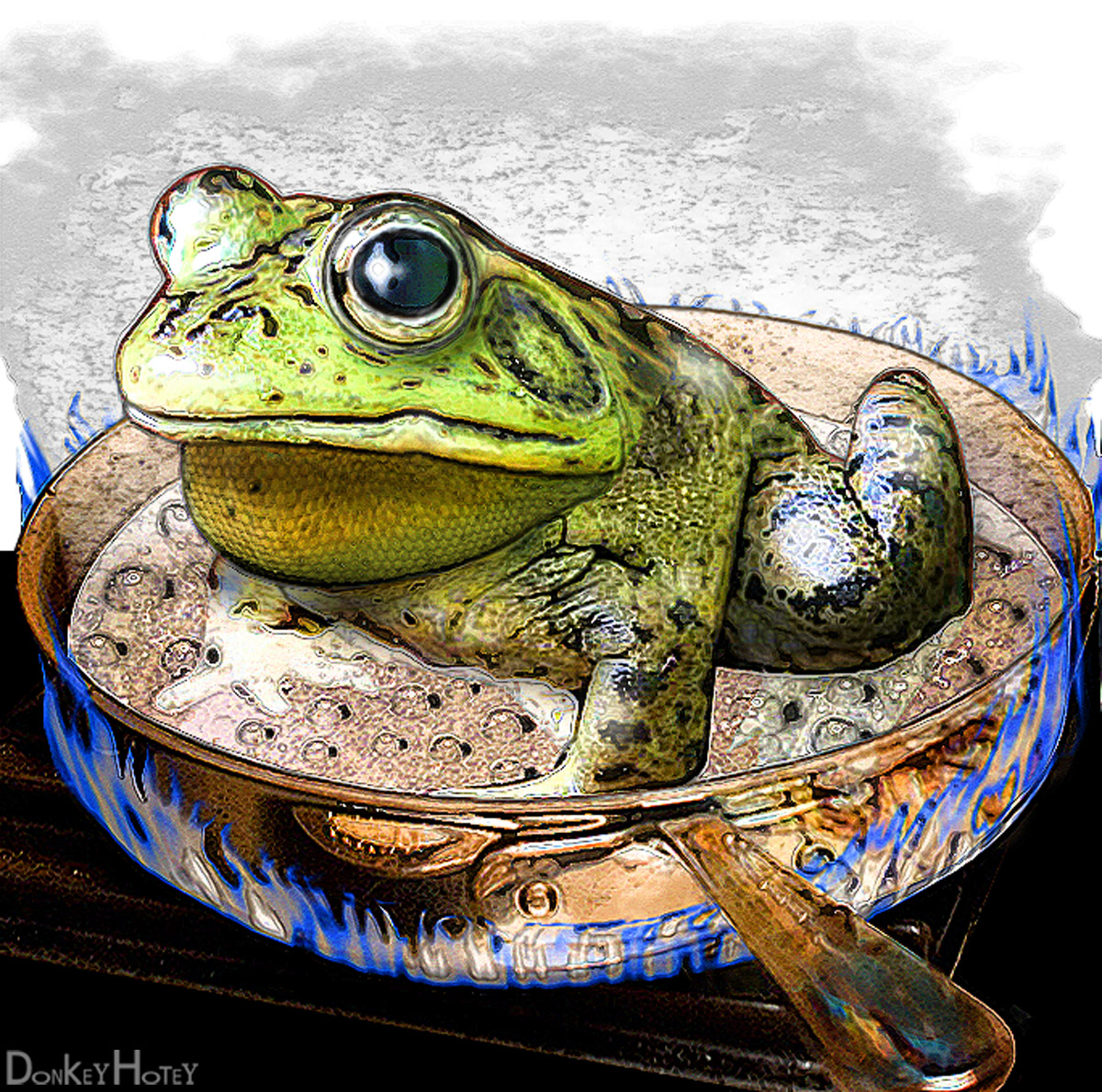You may have previously come across the fable in which two unfortunate amphibians are dropped into two separate pots of water. In the first instance, the water is already boiling and the frog quickly reacts, jumping to safety upon sensing the hot temperature. In the second case, however, the water is initially cool and gradually heats. The frog in this scenario stays put, oblivious to these incremental changes until it is cooked alive.
Incidentally, it has since been proven that the fable does not hold true for frogs. But the jury is still out regarding humans. Recent evidence indicates that we are willing to accept new weather patterns as the norm in as little as five years. So whilst longer, hotter summers, more frequent tropical storms, and February heatwaves may garner headlines now, it might not be long before we have adjusted to the presence of these phenomena in our weather reports. The danger of this climatic amnesia is that we may fail to recognise these changes as the symptoms of a far more sinister trend: our pot of water is slowly becoming uninhabitable.
Dr. David Barash suggests that our collective lack of urgency when it comes to this issue could be partly a result of the discrepancy between our evolutionary drives and our cultural development. Certainly, our primal instincts can be problematic in the transformed cultural landscape that we currently inhabit. Barash gives the example of our penchant for calorific foods, doubtless a sensible choice when you are not sure where your next meal is coming from – not so much when you’ve had your three square meals and have been sat at a desk all day. Now that we are culturally advanced enough to satisfy these evolutionary desires with reckless abandon, they can often be to the detriment of our long-term health.
This discrepancy could also contribute to our lack of inclination to tackle global, long-term issues.Perhaps, despite all of the evidence to the contrary, we instinctively feel that these matters are beyond our control as a species. Our ancestors would have been largely vulnerable to the whims of nature, with little hope of influencing their environment and little reward for those who might try. Instead, they would have adapted to their surroundings, primarily concerned with increasing their chances of short-term survival (survival, in this case, referring strictly to the individual, and not to the species). This may also explain why we appear to lack urgency regarding the plight of future generations. Evolution within a competitive environment has rendered us fundamentally short- sighted and, frankly, somewhat selfish. After all, natural selection does not tend to favour heroism.
However, unlike our ancestors, our way of life now has an unprecedented impact on the world around us. A recent report put together by a group of concerned scientists broke the troubling news that we have just twelve years to limit the global temperature increase to 1.5 degrees celsius. Studies indicate that any warming beyond this point is likely to profoundly affect human life.
It is time to overcome our proclivity towards inaction regarding global problems and make some drastic changes. After all, humans are complex creatures and our actions no longer have to be dictated by our biological drives. We have the capacity to prepare for the future, to be inventive, proactive, organised and altruistic. We must now make use of these traits that distinguish us as a species. Our future depends on it.
Image credit: DonkeyHotey via Flickr

